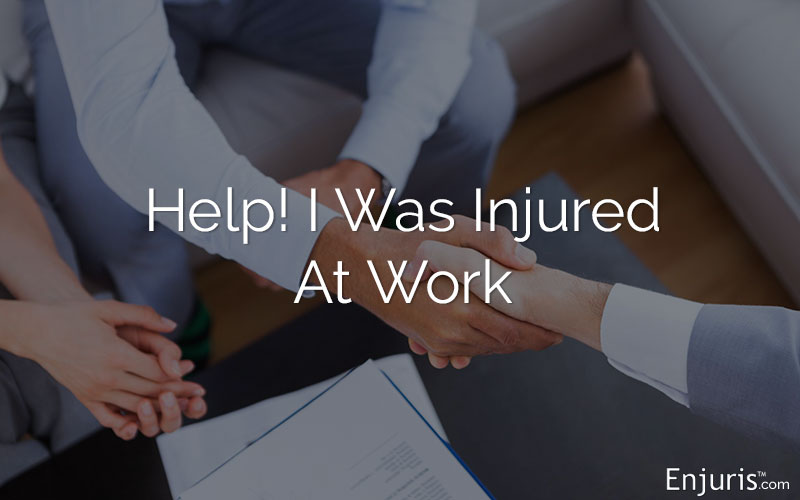A “regular” work shift led to tragedy for one Maricopa County family.
Frank Dorizio, age 55, was setting up a sign in a designated construction zone on SR 347 near Casa Blanca Road that would alert drivers to pavement repairs along Interstate 10, just south of Phoenix. Tragically, just before 9:30 p.m., a passenger car hit and killed Mr. Dorizio.
This was a hit and run accident while the victim was at work.
Sadly, Mr. Dorizio’s family is now in a position to seek workers’ compensation death benefits in Arizona.
In general, if a work-related injury results in death, Arizona workers’ compensation will pay burial expenses up to $5,000 to the dependents of the deceased worker. In addition, they can receive certain income replacement benefits up to ⅔ of the deceased employee’s average monthly wage.
The amount of compensation paid is based on the dependent and their relationship to the deceased.
Arizona workers’ compensation death benefit eligibility
If a family member was killed at work in Arizona, you might be able to recover workers’ compensation death benefits.
Here’s what you can expect to recover:
| Family member(s) | Arizona workers’ compensation death benefits |
|---|---|
| Surviving spouse | If there is a spouse and no children, the spouse may receive two-thirds of the average monthly wage of the deceased at the time of their death.
This compensation is paid until the surviving spouse’s death or remarriage, with 2 years’ compensation to be paid in a single lump sum upon remarriage. |
| Surviving spouse and children | If there’s a surviving spouse and at least 1 child, the spouse can receive 35% of the deceased’s average monthly wage until the surviving spouse dies or remarries, with 2 years’ compensation to be paid in a single lump sum upon remarriage.
The children can receive 31 ⅔% of the average monthly wage, divided equally among them. Compensation is paid until the child reaches 18 years old, or 22 years old if they’re a full-time student. |
| Children, no spouse | A surviving child is entitled to ⅔ of the deceased worker’s average monthly wage. If there is more than 1 child, they would split this amount equally.
Benefits continue until the child either dies or reaches age 18, age 22 if the child is enrolled as a full-time student, or longer if the child is incapable of self-support. |
| No children and no spouse | If there’s no surviving spouse and there are no children under 18, a parent of the deceased worker could be eligible for benefits under certain circumstances. A parent of the deceased worker who was wholly financially dependent on the deceased person could be entitled to 25% of their average monthly wage. |
| No children, spouse, or dependent parent | If the deceased person leaves no surviving parent, spouse, or children, then benefits could be provided to a dependent sibling.
If a sibling is financially dependent on the deceased person, they can receive 25% of the average monthly wage until they turn 18.
If there’s more than one financially dependent sibling, they may receive 35% of the average monthly wage, equally divided among them.
If no sibling is wholly dependent but is partially dependent, they could receive 15% divided equally among however many siblings fit this criterion. |
In addition to a portion of the deceased worker’s wages, the survivors are entitled to burial expenses for the deceased person in an amount of up to $5,000.
Does a hit and run accident qualify for workers’ compensation?
Generally, workers’ compensation benefits are available if a worker is injured or killed while performing tasks related to their job. You don’t have to be on a particular job site, you only need to have been engaged in a task or activity related to your job at the time the injury or illness occurred.
The other important aspect of workers’ compensation is that it’s a no-fault insurance system. In other words, you don’t have to prove that someone was negligent in order to claim benefits.
It doesn’t matter if the accident was the fault of your employer, a coworker, yourself, some other person (like a customer or other individual), or if it was purely an accident that perhaps wasn’t anyone’s fault. If you were working at the time when you were injured, you can claim workers’ compensation benefits.
Can I file a civil suit after a work-related injury?
Yes.
If a work-related injury or death was caused by someone who’s not your employer or a co-worker, you might be able to file a third-party personal injury lawsuit.
When you file a workers’ compensation claim, it means you’re not permitted to sue your employer for your injuries. The workers’ comp system is designed to benefit both the employer and the employee.
For the employee, workers’ comp provides a quick way to recover medical treatment costs and wage benefits without having to spend time or money to prove that someone was at fault.
For the employer, workers’ comp insulates the company against a lawsuit. Although an employer is required to pay insurance to cover every employee, it protects them from the time and money involved in litigation.
But workers’ compensation insurance pays for very specific benefits. It pays for medical treatment for related injuries and a portion of your lost wages. Workers’ compensation doesn’t cover your lost wages or earning capacity in full, and it also doesn’t cover non-economic losses like pain and suffering or other emotional distress or loss of consortium. Nor would it cover additional expenses, like if you needed to pay extra for child care, other home services like cleaning, or transportation services if you’re no longer able to drive.
A lawsuit, on the other hand, is designed to make a plaintiff whole, or to restore you to the financial condition you’d be in if the accident hadn’t happened.
In Mr. Dorizio’s case, the related lawsuit would likely be a wrongful death claim. Such a claim may be filed by the deceased person’s:
- Spouse
- Child
- Parent or guardian
- A personal representative (on behalf of the spouse, child, parent or guardian, or estate)
Other family members like siblings, grandparents, and others are not permitted to file a wrongful death claim in Arizona.
As in any other type of personal injury lawsuit, the plaintiff in a wrongful death claim would need to prove that the deceased person’s death was caused by the defendant’s negligence.
But, wait… Mr. Dorizio was killed in a hit and run! How can his family file a lawsuit?
Well, the sad truth is that you can’t file a lawsuit if you don’t know who you’re suing. Law enforcement and investigators have ways to figure out who caused a hit and run accident, but they aren’t always successful.
If you’ve lost a loved one in a hit and run accident, definitely follow up with law enforcement to see if they can find the driver. They have a variety of methods at their disposal that they use to find criminals (and a hit and run is a crime when someone dies).
If law enforcement isn’t able to locate the driver, you’d still be able to rely on workers’ compensation death benefits in this type of circumstance.
In addition, so long as it can be proven that there was a hit and run driver, the beneficiaries of the person killed (decedent) can make an uninsured motorists (UM) claim with the auto insurance company if the vehicle and or the decedent had such coverage.
There’s one thing that’s clear… losing a family member can be traumatic, especially when the death is sudden and unexpected. The last thing you want to do in those moments that follow is to worry about insurance payments, benefits, and expenses. But you have to, whether it’s for yourself, your children, or another family member who’s suffering from the loss.



 The team at the Law Offices of Robert E. Wisniewski is experienced in dealing with workers’ compensation claims and its lawyers are Certified Specialists Workers’ Compensation (Arizona State Bar). Contact us today for a free initial consultation if you believe that you’re entitled to workers’ compensation benefits for a car accident or other work-related injury. View
The team at the Law Offices of Robert E. Wisniewski is experienced in dealing with workers’ compensation claims and its lawyers are Certified Specialists Workers’ Compensation (Arizona State Bar). Contact us today for a free initial consultation if you believe that you’re entitled to workers’ compensation benefits for a car accident or other work-related injury. View 